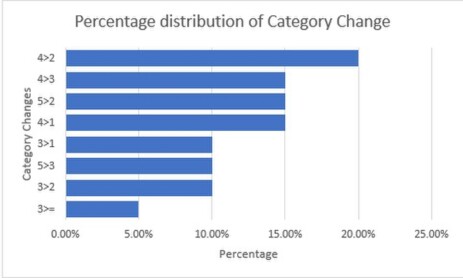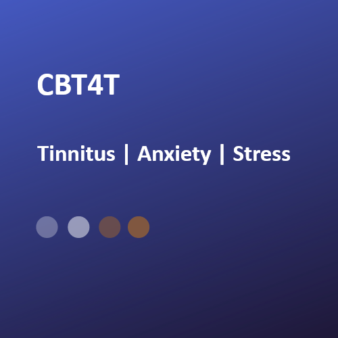Audiologists & Hearing Therapists
What has CBT4T got to offer Audiologists & Hearing Therapists?
An information pack, an invitation to join the CBT4T Substack and a brand new online training for Audiologists!
Information Pack for Audiologists
There is a super-short information pack for Audiologists - updated for CBT4T 2025 - giving more detail about what CBT4T (previously the CBT for Tinnitus E-Programme) involves and how it can help your patients. The intro sections are previewable, and sign up for free to see the detail. After going through the pack, if you would like to see inside the course, you are welcome to book a 30 minute Zoom meeting where I can screen-share inside the course.
CBT4T is a defined process, worked through at the individual patient's own pace based on their needs and responsibilities. It is structured to be used in the order it is set out. There is a reason for everything used being not only what it is, but where it is in the process. CBT4T draws together relevant neuroscience including an understanding of brain plasticity, components from polyvagal theory, trauma, and consciousness studies woven in to the CBT process, stage by stage.
CBT4T Substack
- For anyone supporting others who have tinnitus, such as Audiologists, Hearing Therapists, and those in a tinnitus supporting/advisory role
- For anyone with tinnitus, whether they are already using the CBT4T programme or not yet enrolled
- Subscribe for free
- Link to CBT4T Substack
- More information
- How you got here: We need to understand how we got here, to know how to move forward - posted 13 May 2025 on CBT4T Substack
Brand new online training with Debbie Featherstone for Audiologists & Hearing Therapists
CATT (Cognitive Approach to Tinnitus) online training in development for 2026
CBT4T Recommended by Audiologists
Audiologists frequently recommend CBT4T (the CBT for Tinnitus E-Programme) to their patients. Enrolment includes one, two or six individual 60-90 minute appointments using Zoom, along with support throughout the comprehensive CBT process via email and interactive tools. More information
CBT4T ©
Snapshot of how the CBT for Tinnitus E-Programme brings about the necessary changes


How much change can be expected?
Tinnitus Functional Index (TFI) Category changes following completion of the 12 stage CBT for Tinnitus E-Programme
Average change by TFI value:
- Cat 5 pre-course: 84.9% > 29.9% (Cat 2 post-course)
- Cat 4 pre-course: 64.8% > 20.8% (Cat 2 post-course)
- Cat 3 pre-course: 45.6% > 19.0% (Cat 2 post course)
